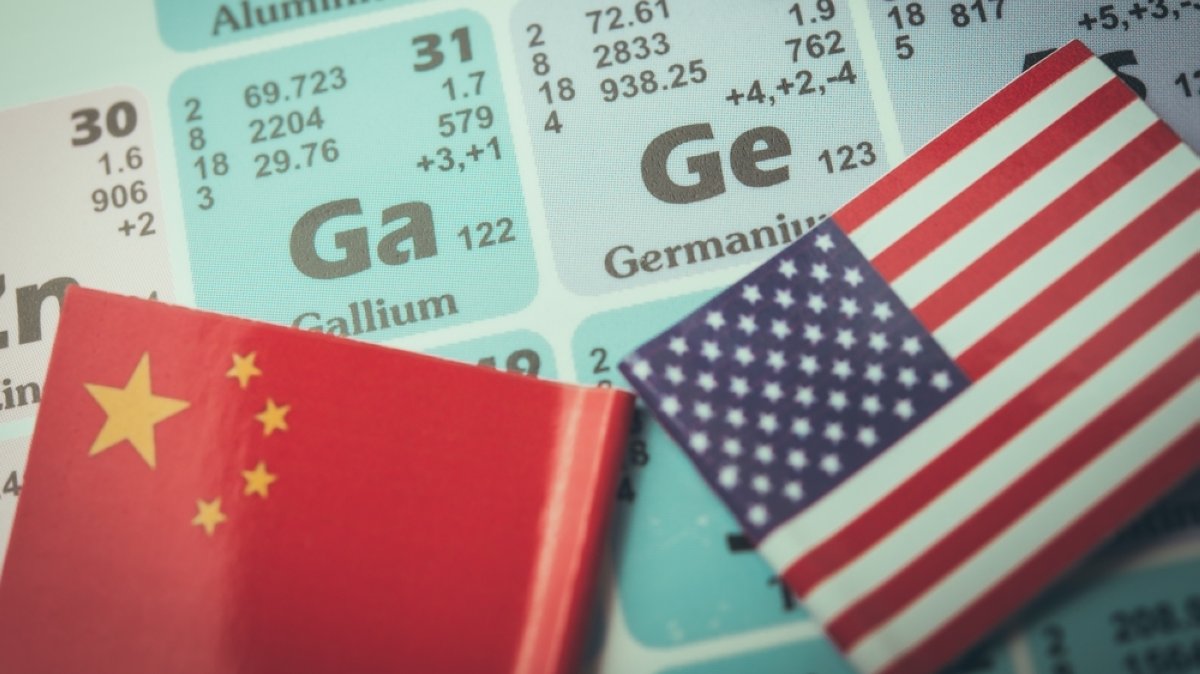In today’s increasingly complex world, global competition is shaped by two main forces: technological advancement and the struggle for secure energy transitions. Yet, behind these headline issues lies another critical factor: the global contest over the rare earth elements, which, of course, is not new. What is new is the attention they are now receiving. They have quietly become one of the world’s most decisive instruments of economic and geopolitical power and they are likely to remain in focus for quite some time.
For Türkiye, this evolving competition carries both strategic risks and significant opportunities: The said risks arise from the volatility of global trade relations and the persistent dominance of a single processing hub, which could expose even resource-rich countries to supply disruptions or market pressure. Yet, Türkiye’s geographic position, industrial capabilities and growing expertise in defense and high-technology sectors make it a potential hub for the production and processing of critical minerals.
The country’s ongoing work at the Beylikova rare earth site in the northwestern province of Eskişehir, believed to be one of the largest deposits in the world, has already positioned it as an emerging player in this critical market. Beyond mineral wealth, Türkiye’s regulatory framework, which keeps natural resources under state control, provides both legal stability and room for strategic partnerships with Western allies.
Experts underline that rare earths are not literally rare in nature, yet their extraction and processing are highly complex and environmentally costly. There are 17 metallic elements known as rare earths, used in high-technology applications ranging from semiconductors and electric vehicles to advanced defense systems. China currently accounts for over 60% of global production and more than 90% of processing capacity, a near monopoly according to international estimates. This explains why discussions around rare earths often extend far beyond mining, as they touch the very foundation of industrial and national security.
The recent decision by Beijing to delay its new export restrictions on rare earths, announced after the Oct. 30 meeting between U.S. President Donald Trump and Chinese President Xi Jinping in South Korea, marks an important moment in this ongoing global competition. China agreed to postpone the introduction of additional controls for one year, while earlier restrictions introduced in April remain in place. The move was presented as a diplomatic success for both sides, a temporary stabilization rather than a full settlement, offering Washington short-term relief but leaving the structural imbalance unchanged.
President Trump, speaking after the summit, said there are no remaining barriers to rare-earth elements and described the outcome as a one-year agreement subject to annual review. He expressed hope that a lasting accord on tariffs could also be reached before the end of the year. At the same time, Washington halved certain tariffs on fentanyl imports from China, while Beijing pledged to resume purchases of American agricultural goods and to maintain steady supplies of critical minerals. Though couched in conciliatory terms, the understanding leaves the April export curbs, including those on magnets vital for defense and chip manufacturing, firmly in place.
Europe is taking similar steps to reduce its reliance on Chinese processing, though progress has been slow. The complexity and environmental cost of refining rare earths make diversification a long-term endeavor. For this reason, access to China’s refined materials remains, at least for now, an unavoidable component of Western trade diplomacy. Beijing’s position, controlling over 90% of the global processing capacity, continues to serve as a formidable instrument of influence.
Viewed through the prism of law, these developments illustrate a fundamental transformation in how governments manage economic power. Export licensing regimes, investment screenings and tariff adjustments are increasingly serving as tools of strategic control rather than conventional trade regulation. The line between international trade law and national security policy is blurring, creating a new framework in which access to critical resources reflects political alignment. This reality challenges longstanding principles within the World Trade Organization and will likely shape future debates on the meaning of economic sovereignty.
Within this shifting order, Türkiye’s proactive stance is noteworthy. By aligning its resource strategy with Western supply chain diversification, while maintaining balanced relations with Beijing, Ankara demonstrates a pragmatic understanding of new global realities. Its participation in multilateral platforms such as the Mineral Security Partnership underscores Türkiye’s capacity to contribute to collective resilience without compromising its strategic autonomy. This nuanced position allows Türkiye to emerge not merely as a supplier but as a technological and regulatory partner in the rare earth ecosystem.
The rare earth competition, once a technical matter for scientists and engineers, has evolved into a defining issue of global diplomacy. As major powers recalibrate their trade and security relations, countries capable of combining industrial capacity with geopolitical balance, such as Türkiye, will be among the actual beneficiaries of this transformation. The current pause between Washington and Beijing may temporarily ease global tensions, but the broader struggle over critical minerals, technologies and influence is sure to continue. What remains constant is that in the new economic geography of power, access, control and cooperation over rare earth elements will determine the boundaries of strategic independence for decades to come.
The views and opinions expressed in this article are solely those of the author. They do not necessarily reflect the editorial stance, values or position of Daily Sabah. The newspaper provides space for diverse perspectives as part of its commitment to open and informed public discussion.

